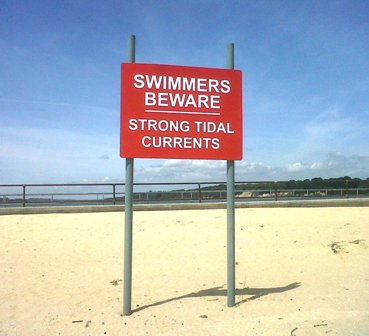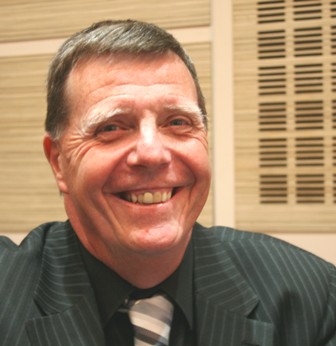
Swimmers in leisure waters take care: turbulent times ahead
A final view from the bridge
In his last article for The Leisure Review in his role as national adviser with LGG, the Local Government and Improvement agency, Martyn Allison casts an eye over the sport, leisure and culture sector, and identifies some of the challenges to come if the sector is to survive.

Swimmers in leisure waters take care: turbulent times ahead
These are still turbulent times and, although the impact of the budget process is only just becoming clear, I think I sense a new focus on the future emerging as new political and officer teams settle into their roles.
The picture emerging, however, varies considerably, with some councils facing unprecedented reductions in budgets but others talking to me about potential new facilities. The flip side of localism is often said to be the ‘postcode lottery’ and it is clear that while some communities will maintain access to a wide range of culture and sport opportunities others will not. Perhaps as a sector we need to become much more vocal once again about equity, one of our flagship issues in the past.
I have always believed that this difference is often due to the quality of local political and managerial leadership and management capability, and I think these drivers are still very much the key factors that underpin most of the differences we are seeing. However, this is not entirely true as in some places the sheer scale of savings required in very short timescales defies the abilities of even the best managers and politicians to find sustainable solutions.
The focus of my last article was on the potential leadership vacuum that will be created by the ‘grey heads’ leaving the sector, a process that is leaving increased reliance on operational managers to lead and represent the sector, often from outside councils. This picture is definitely emerging and our professional bodies, including our shiny new IMSPA (the Institute for the Management of Sport and Physical Activity), must urgently address the issue of building new leadership. Colleagues on the National Cultural Forum have committed themselves to keeping the Leading Learning programme going but unless councils, community sports partnerships, national governing bodies of sport, trusts, private contractors and other key providers are prepared to facilitate their staff attending I fear it will end up a casualty. Let’s all commit to finding another 30 future leaders next year to go with the 75 we have created already.
The drive for new, more efficient methods of delivery and new business models continues apace but I am increasingly concerned that we have not yet grasped the nettle of capacity-building. You cannot simply expect community groups, clubs, arts groups or library users to take on these ‘big society’ responsibilities overnight without some help and support unless you are happy to see them fail. Again, those communities that include the accountants, lawyers, architects and other professionals might be able to take these on but what about communities without these skills? It’s that equity thing again.
Building new sustainable organisations that are not reliant on large tracts of public sector funding will take time, energy and resources. Who is championing this issue and addressing it in a coherent way across the sector?
The provider market in leisure management is changing fundamentally but perhaps we have not fully grasped the implications of what is happening. While we see the number of trusts growing and many observers have predicted a huge opportunity for private sector companies, I have recently been surprised to hear that the opposite might be true.
Faced with reducing income streams, many existing private operators are stripping away the management capacity that supported development and more importantly provided the capacity to bid for new contracts. As a result they could be retrenching to retain existing contracts, an approach which in the end could become the start of a spiral of decline. I suspect this situation will quickly reopen the debate about tax and rate advantage, which at its peak was quite destructive in terms of one voice for the sector. This is a big issue for our leaders. Do we want to maintain a mixed economy that gives councils choice or are we content to see our private sector disappear? I can hear the debate now but for IMSPA, which is trying to position itself as the professional body for sport and physical activity, talking with one voice on this issue could quickly tear it apart if not vented and addressed properly.
On the cultural side, the demise of MLA and the transfer of libraries and museums to Arts Council England are certainly generating some interesting debates. Some see this as a great opportunity for a single conversation with councils about culture and a cultural offer. This policy framework coupled with the drive for efficiency will stimulate opportunities to rationalise buildings, staffing, management and activity. Commissioners of health, social care and children’s services will certainly welcome this rationalisation, which may enable them to buy a single cultural offer. However, others are seriously worried about what this might mean for the separate and distinct services, professional integrity and customer choice. And where does heritage and tourism sit in this single conversation?
Surely if the National Culture Forum has any role in the future it must be to debate and respond to these big strategic issues, and talk with one voice to the LGG, the Department for Culture, Media and Sport, and the non-departmental public bodies about how we want to shape our sector’s future. At the recent event to launch IMSPA the sports minister said he wanted the new body to be outside his DCMS family and be “edgy” in its challenge to him and his department. Perhaps the National Culture Forum should adopt the same approach otherwise it might as well simply give up.
There are many other issues that I feel need airing, such as the future of children’s play and the place of Greenspace in this new landscape, but perhaps others can pick up these issues; I have gone on long enough.
For my part can I just say thank you to everyone who has helped me over the last six years; I could not have done it without you. For those of you breathing a sigh of relief that I will no longer be chasing them to do their self-assessment, I will just say good luck, you will need it, and to everyone else, keep improving.
The Leisure Review, July 2011
© Copyright of all material on this site is retained by The Leisure Review or the individual contributors where stated. Contact The Leisure Review for details.
Download a pdf version of this article for printing
